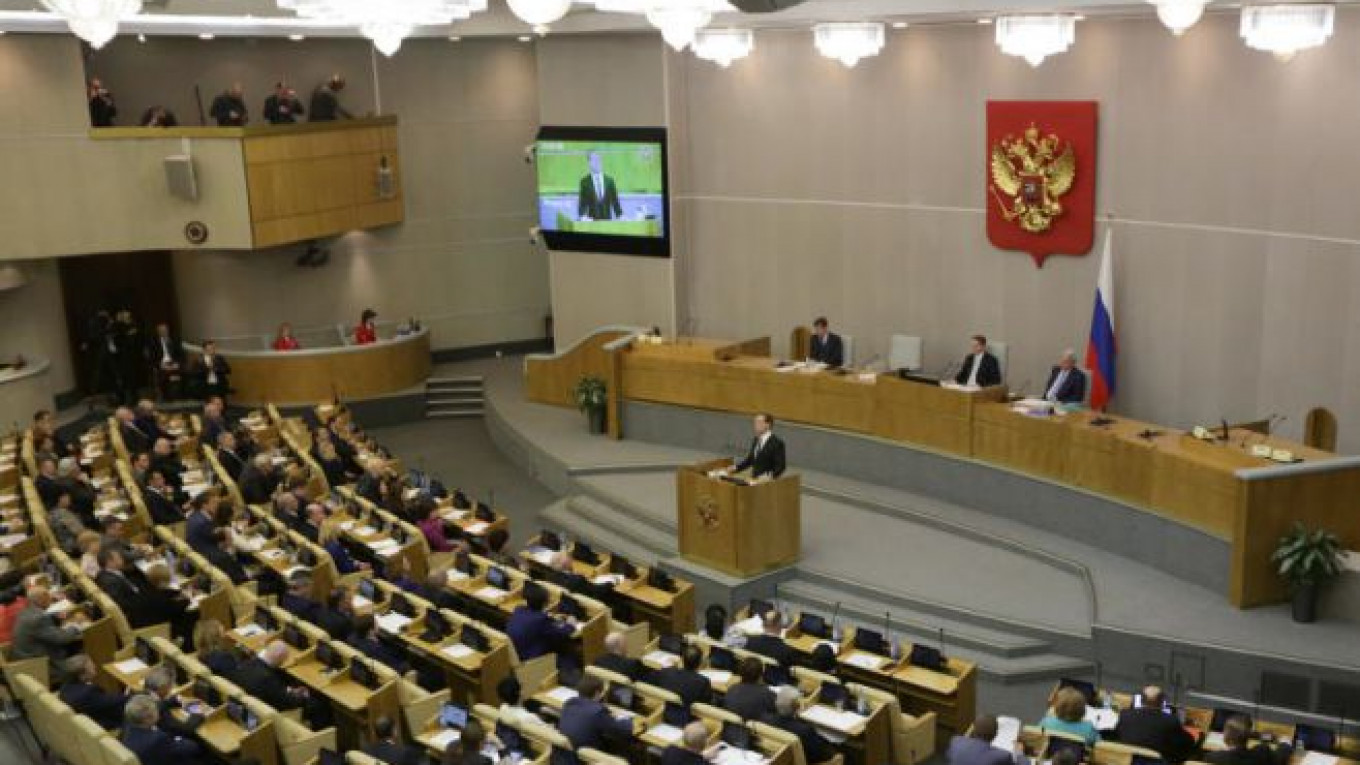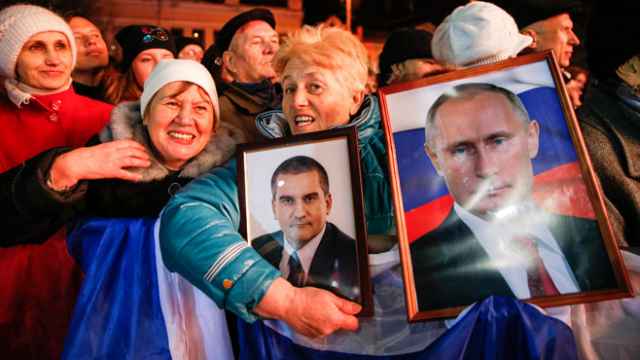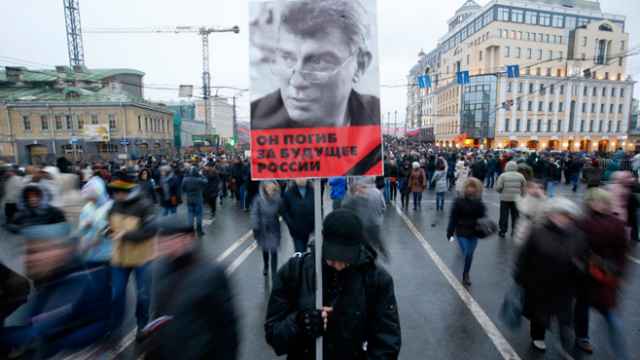In what has become a common political tactic in modern Russia, the next round of State Duma elections may be moved up to an earlier date than originally planned. On Monday, a bill proposing that the elections to Russia's lower house of parliament scheduled for December 2016 be pushed forward to September was submitted for consideration.
Russian parliamentary elections have been held in December since 1993. However, Duma speaker Sergei Naryshkin recently said that lawmakers should now be elected before budgets are passed later in the fall.
Some commentators have noted that the new timing would place campaigning in the middle of the Russian vacation season. Others have suggested that incumbent legislators may favor earlier elections to stay ahead of rising discontent over the recent economic downturn in Russia.
Allegations of fraud in the last Duma elections in December 2011 sparked mass protests of a size and intensity before unseen in Putin's Russia, and avoiding a repeat of this scenario is certainly on the minds of ruling party officials. Yet it is not completely clear how moving the elections up three months would address the potential for renewed unrest.
If the date for the next Duma elections is indeed changed, as expected, this will mark only the latest such move in recent years. Just last month, a wave of governors, including those of the Irkutsk, Omsk, Kamchatka and Leningrad regions, formally resigned to force early elections in September, until which time they will continue to serve as acting governors.
These governors are likely looking to extend their mandates before the shock of Russia's recent economic downturn erodes their popularity. Other governors, such as those from the Orenburg and Nizhny Novgorod regions, pulled the same stunt last year and successfully won re-election, extending their time in office.
Similar tactical considerations are also believed to have motivated previous decisions to push forward elections in Russia.
In June 2013, Moscow mayor Sergei Sobyanin, who had earlier said there would be no election until his term expired in 2015, changed his mind and called a snap election for September.
At the time, political analyst Georgy Bovt wrote that Sobyanin was likely aiming to capitalize on his current popularity to extend his mandate through 2018, while also keeping potential challengers from having enough time to wage a serious campaign. Sobyanin ultimately succeeded in renewing his mayorship.
The tactical rescheduling of elections has a history in modern Russia stretching back beyond recent years.
As a top deputy to St. Petersburg mayor Anatoly Sobchak, a young Vladimir Putin was appointed head of Sobchak's re-election committee in 1996. Putin came up with the idea of holding the election four weeks earlier than originally scheduled on the basis that this would reduce the time for opponents to organize. Despite Putin's efforts, however, Sobchak was still unseated as mayor.
In Moscow, Putin was appointed acting president following Boris Yeltsin's surprise resignation six months before the end of his term on Dec. 31, 1999. Yeltsin's early resignation abruptly moved up the timetable for holding Russia's next presidential election from June, as initially scheduled, to March 2000.
As reported by The New York Times, many speculated that Yeltsin's resignation was timed to allow Putin to face election while his star was on the rise and before the war in Chechnya could begin to sour, as well as to throw Putin's presidential opponents off balance. Putin won the election and has remained in power ever since.
So is the new proposal to reschedule the State Duma elections in 2016 a tactical play? Viewed as part of a broader pattern in modern Russian politics, it appears likely that someone sees an advantage to holding these elections at an earlier date.
Will Wright is a political analyst and journalist focused on Eurasia.
A Message from The Moscow Times:
Dear readers,
We are facing unprecedented challenges. Russia's Prosecutor General's Office has designated The Moscow Times as an "undesirable" organization, criminalizing our work and putting our staff at risk of prosecution. This follows our earlier unjust labeling as a "foreign agent."
These actions are direct attempts to silence independent journalism in Russia. The authorities claim our work "discredits the decisions of the Russian leadership." We see things differently: we strive to provide accurate, unbiased reporting on Russia.
We, the journalists of The Moscow Times, refuse to be silenced. But to continue our work, we need your help.
Your support, no matter how small, makes a world of difference. If you can, please support us monthly starting from just $2. It's quick to set up, and every contribution makes a significant impact.
By supporting The Moscow Times, you're defending open, independent journalism in the face of repression. Thank you for standing with us.
Remind me later.






